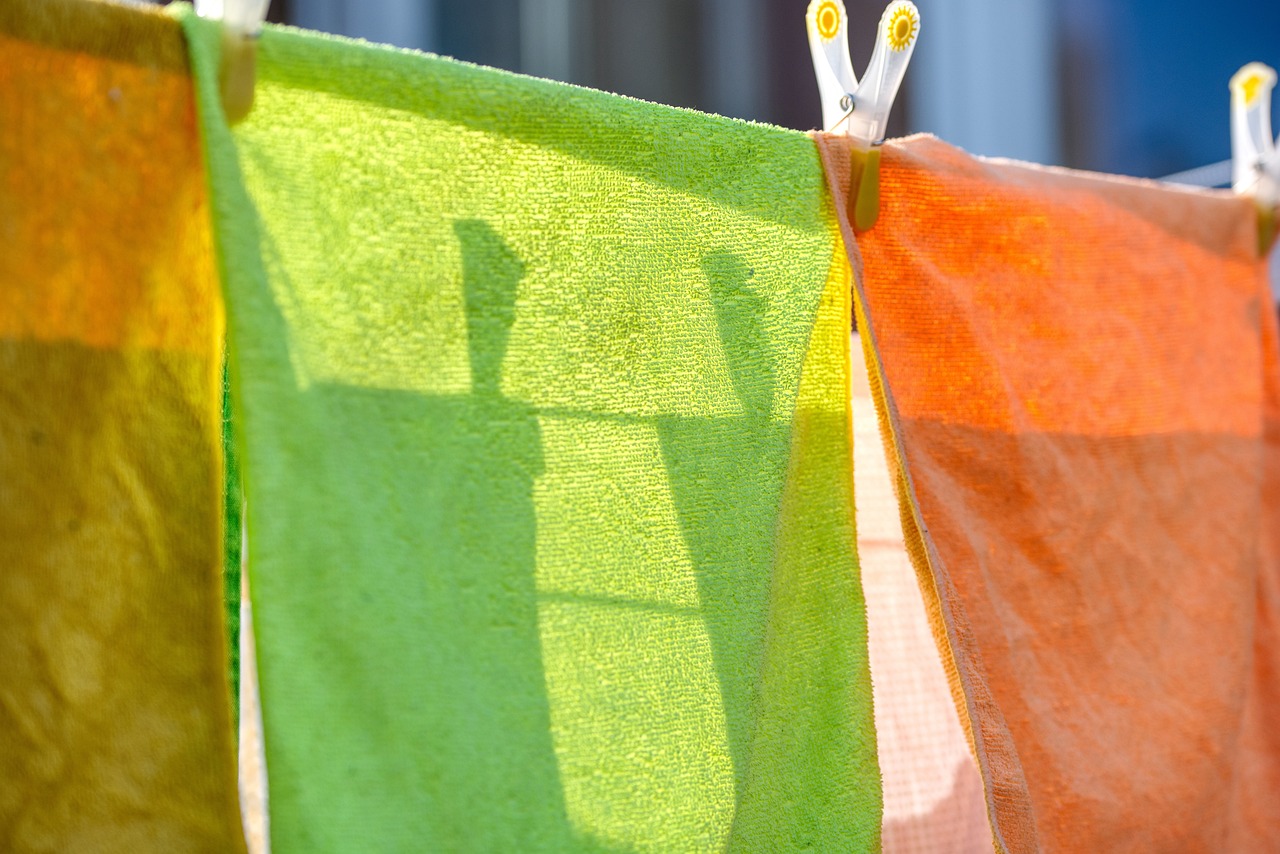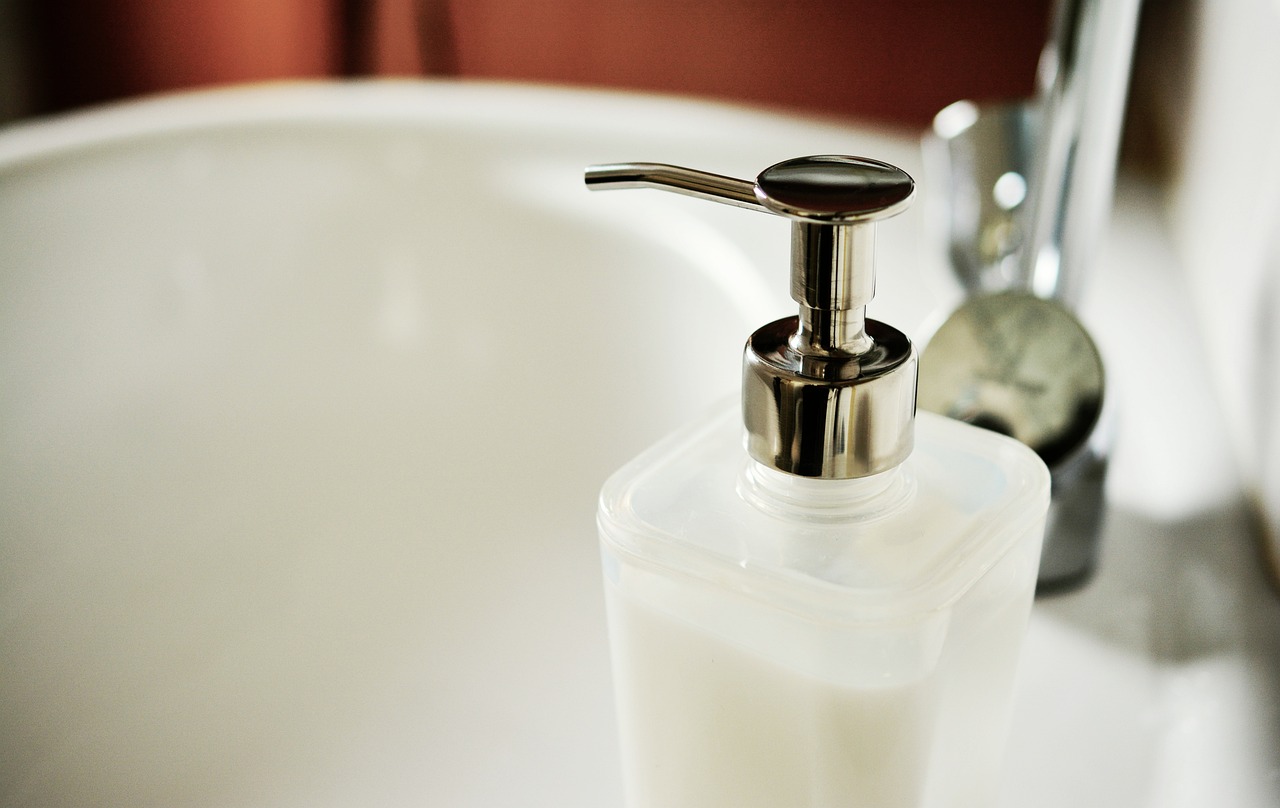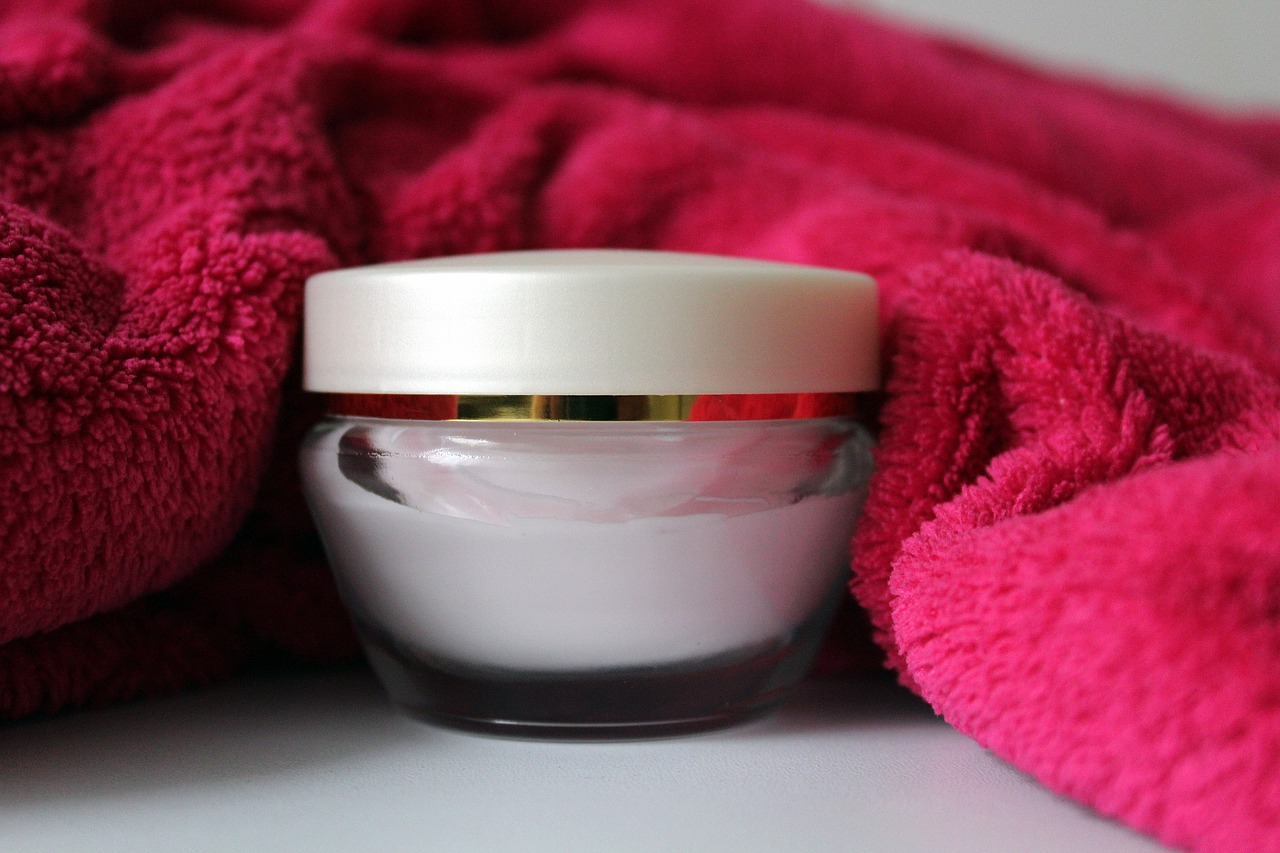Understanding the Importance of Regular Ear Cleanings
When was the last time you thought about your ears? Most of us tend to overlook our ear hygiene, treating it like the forgotten corner of our daily routines. But just like any other part of our body, our ears require regular attention to maintain optimal health. Regular ear cleanings are not just a matter of aesthetics; they play a crucial role in our overall well-being. Neglecting ear hygiene can lead to a host of issues, from minor discomfort to serious infections. So, why should you prioritize ear cleanings? Let’s dive into the details!
First off, let’s talk about the buildup of earwax. While earwax is a natural substance that helps protect our ears from dirt and bacteria, too much of it can lead to blockages. Imagine trying to listen to your favorite song with a pair of earmuffs on—frustrating, right? That’s what excessive earwax can do to your hearing. Regular cleanings can help prevent this buildup, ensuring that you enjoy crystal-clear sound without any muffling. Plus, ear cleanings can help reduce the risk of infections, which can arise when wax traps moisture and bacteria in the ear canal.
Moreover, regular ear cleanings can enhance your overall auditory experience. Think of your ears as finely tuned instruments; if they’re not maintained, they won’t perform at their best. Just as a musician regularly tunes their guitar, you should also consider giving your ears the care they deserve. This not only helps in maintaining your hearing but also contributes to your balance and coordination, as our ears play a significant role in these functions.
Now, you might be wondering about the methods available for ear cleaning. There are several approaches, ranging from professional services to simple at-home techniques. Understanding the best practices can help you make informed choices about your ear care routine. However, it’s essential to remember that not all methods are safe, and some can even cause more harm than good. That’s why knowing when to seek professional help is a vital aspect of ear hygiene.
In summary, regular ear cleanings are far more than a cosmetic concern; they are a fundamental part of maintaining your health. By prioritizing ear hygiene, you can prevent complications, enhance your hearing, and ensure that your ears are in top-notch condition. So, the next time you’re about to skip your ear care routine, think about all the benefits you could be missing out on!
- How often should I clean my ears? It depends on individual factors like earwax production and previous ear issues. Consulting a healthcare professional can provide personalized recommendations.
- Can I use cotton swabs to clean my ears? It’s generally advised to avoid cotton swabs as they can push wax further into the ear canal and cause damage.
- What signs indicate I need to clean my ears? Signs include itching, discomfort, or decreased hearing. If you experience persistent symptoms, seek medical attention.

The Benefits of Regular Ear Cleanings
Regular ear cleanings are not just a matter of aesthetics; they play a crucial role in maintaining your overall ear health. Imagine your ears as intricate musical instruments. Just as a musician must keep their instrument in top shape to produce beautiful sounds, you must care for your ears to ensure they function optimally. One of the most significant benefits of routine ear cleanings is enhanced hearing. Over time, earwax can accumulate, leading to a muffled perception of sounds. This buildup can be likened to a dirty window; the more grime there is, the less light can shine through. By keeping your ears clean, you allow sound waves to enter unobstructed, improving your auditory experience.
Another major advantage is the prevention of infections. Earwax, while protective, can sometimes trap bacteria and moisture, creating an environment ripe for infection. Regular cleaning helps to minimize this risk, ensuring that your ears remain healthy. Think of it as regular maintenance for your car; neglecting it might lead to costly repairs down the line. In addition to preventing infections, regular cleanings can also eliminate excess wax buildup, which can cause discomfort and even pain. No one wants to deal with the nagging itch or pressure that comes from blocked ears!
Furthermore, understanding the significance of ear hygiene can help you avoid potential complications that arise from neglect. Consider this: if you regularly clean your ears, you’re not only addressing current issues but also preventing future problems. This proactive approach is akin to going to the dentist for regular check-ups—it's always better to catch problems early than to deal with them when they escalate.
In summary, the benefits of regular ear cleanings can be encapsulated as follows:
- Enhanced hearing: Clear ears allow for better sound perception.
- Infection prevention: Reduces the risk of bacteria and moisture build-up.
- Comfort and relief: Eliminates discomfort caused by excessive wax.
- Long-term health: Prevents future complications and maintains ear hygiene.
By prioritizing regular ear cleanings, you are investing in your auditory health and overall well-being. It's a small effort that can yield significant rewards, ensuring that you hear the world around you clearly and comfortably.

Common Ear Cleaning Techniques
When it comes to keeping our ears clean and healthy, there are several techniques available that can help us achieve optimal ear hygiene. Understanding these methods is essential, as they can significantly impact our overall ear health. From professional services to at-home remedies, each technique has its own set of benefits and considerations. So, let’s dive into the world of ear cleaning!
First off, many people opt for professional ear cleaning services. This method involves visiting an audiologist or an ENT (Ear, Nose, and Throat) specialist, who has the expertise and tools to clean your ears effectively. During a professional cleaning, you can expect a thorough examination of your ear canals, followed by the use of specialized instruments to remove any wax buildup safely. This technique is especially beneficial for those who produce excess earwax or have experienced previous ear issues.
But what if you prefer to take matters into your own hands? At-home ear cleaning methods are quite popular and can be effective if done correctly. One common method involves using ear drops designed to soften earwax, making it easier to remove. These drops can be found at most pharmacies and are generally safe when used as directed. Another technique is gentle irrigation, where you use a bulb syringe filled with warm water to rinse out the ear canal. However, it’s crucial to be cautious with this method to avoid damaging the ear canal or pushing wax further inside.
While at-home techniques can be effective, there are some important do's and don'ts to keep in mind:
- Do: Use only recommended over-the-counter products and follow the instructions carefully.
- Don't: Insert cotton swabs or any other objects into your ear canal, as this can push wax deeper and cause injury.
- Do: Consult a healthcare professional if you experience discomfort or have concerns about earwax buildup.
- Don't: Ignore symptoms like itching or decreased hearing, as these can indicate the need for cleaning.
In summary, whether you choose to go for a professional cleaning or prefer to tackle ear hygiene at home, being informed about the available techniques is crucial. Each method has its advantages, and understanding how to use them safely can help you maintain your ear health effectively. Just remember, if you're ever in doubt, consulting a healthcare professional is always the best course of action!
1. How often should I have my ears professionally cleaned?
It's generally recommended to consult with a healthcare provider to determine the frequency based on your individual needs. Some people may need cleanings every few months, while others may only need it once a year.
2. Are at-home cleaning methods safe?
At-home methods can be safe if done correctly. Always follow the instructions on any products you use, and avoid inserting objects into your ear canal.
3. What should I do if I experience pain during cleaning?
If you experience pain while cleaning your ears, stop immediately and consult a healthcare professional. Pain can be a sign of an underlying issue that needs to be addressed.
4. Can I use cotton swabs to clean my ears?
It's best to avoid using cotton swabs inside your ear canal, as they can push wax deeper and potentially cause injury. Instead, use safer cleaning methods as discussed.
Professional Ear Cleaning Services
When it comes to maintaining optimal ear health, stand out as one of the most reliable options. Many people might wonder, "Why should I go to a professional when I can clean my ears at home?" The answer lies in the expertise and specialized tools that audiologists and ENT specialists bring to the table. These professionals are trained to assess your ear health accurately and can provide a thorough cleaning that is both safe and effective.
During a professional ear cleaning session, you can expect a meticulous examination of your ears. This examination typically includes checking for any signs of infection, wax buildup, or other issues that could affect your hearing. The professionals often use tools like otoscopes to get a clear view of your ear canal and eardrum. This allows them to tailor their cleaning methods specifically to your needs, ensuring that any buildup of earwax is effectively removed without causing damage to your delicate ear structures.
One of the significant advantages of opting for professional cleaning is the use of advanced techniques. For instance, some clinics employ a method called microsuction, which involves using a small suction device to gently remove wax. This method is particularly beneficial for individuals who have a history of ear problems or those who produce excessive wax. Additionally, professionals can provide guidance on how to maintain ear hygiene at home, helping you avoid future complications.
It's essential to note that while professional ear cleaning is beneficial, it’s not a one-size-fits-all solution. The frequency of these cleanings can vary based on individual factors such as your earwax production and any previous ear-related issues. Some individuals may require cleanings every few months, while others might only need them once a year. Regular assessments with your healthcare provider can help determine the best schedule for you.
In summary, seeking can significantly enhance your ear health. With their expertise and specialized tools, professionals can ensure that your ears are clean and healthy, while also providing you with valuable tips for maintaining ear hygiene at home. So the next time you find yourself wondering about your ear health, consider booking an appointment with an audiologist or ENT specialist. Your ears will thank you!
- How often should I get my ears professionally cleaned? The frequency depends on individual earwax production and any previous issues, but generally once or twice a year is sufficient for most people.
- Is professional ear cleaning painful? No, professional ear cleaning should not be painful. If you experience discomfort, inform your provider immediately.
- Can I clean my ears at home? Yes, but it's crucial to follow safe practices and avoid inserting objects into your ear canal.
- What are the signs that I need a professional cleaning? Symptoms like discomfort, itching, or a decrease in hearing can indicate that you should seek professional help.
What to Expect During a Professional Cleaning
When you decide to visit a professional for ear cleaning, it's normal to wonder what the process entails. First and foremost, you'll be greeted by a friendly staff member who will guide you through the initial paperwork and any necessary health history forms. This step is crucial as it helps the audiologist or ENT specialist understand your specific ear health needs. Once that's done, you'll be taken to an examination room where the real magic happens.
During the examination, the professional will use an otoscope, a tool equipped with a light and magnifying lens, to take a closer look at your ear canal and eardrum. This examination is essential for identifying any issues such as excessive wax buildup, infections, or other abnormalities. You'll likely feel a bit of pressure as they gently maneuver the otoscope, but it shouldn't be painful. If you have any concerns or discomfort, don't hesitate to express them; communication is key!
After the examination, the cleaning process begins. Depending on your needs, the specialist may employ various techniques, including suction, irrigation, or manual removal of earwax. Each method has its own advantages:
- Suction: This method uses a small vacuum-like device to gently remove wax without causing discomfort.
- Irrigation: Warm saline solution is introduced into the ear canal to soften and flush out wax.
- Manual Removal: This technique involves using specialized tools to carefully extract wax buildup.
Throughout the cleaning, the professional will ensure your comfort and safety, explaining each step as they go along. You might also be asked to tilt your head or hold still to facilitate the process. Remember, this is a routine procedure for them, and they are trained to handle any situation that may arise. If you're feeling anxious, consider asking questions; understanding the process can ease your worries.
Once the cleaning is complete, the specialist will provide you with aftercare instructions. This might include advice on how to maintain ear hygiene at home and recommendations for follow-up visits if necessary. It's essential to take these instructions seriously to keep your ears healthy and prevent future issues. Overall, a professional ear cleaning is a straightforward, safe, and beneficial experience that can significantly enhance your ear health.
Frequency of Professional Cleanings
When it comes to maintaining optimal ear health, understanding the is essential. Just like how we schedule regular check-ups for our teeth or general health, our ears deserve the same attention. The frequency can vary significantly based on individual factors such as earwax production, personal hygiene habits, and any previous ear issues. For some, a visit to an audiologist or ENT specialist every six months may be sufficient, while others with a history of earwax buildup or infections might need to go as often as every three months.
It's important to recognize that everyone’s ears are unique. For instance, individuals who produce a lot of earwax might find themselves needing more frequent cleanings. On the other hand, those who have a naturally drier ear canal may only need an annual check-up. Age can also play a role; children and older adults often have different ear hygiene needs compared to younger adults. Therefore, regular assessments can help tailor the cleaning schedule to fit your specific requirements.
To give you a clearer picture, here’s a simple table that outlines general recommendations based on different factors:
| Factor | Recommended Frequency |
|---|---|
| Normal earwax production | Every 6-12 months |
| Excessive earwax production | Every 3-6 months |
| History of ear infections | Every 3-6 months |
| Children | Every 6-12 months |
| Older adults | Every 6-12 months |
It's also worth noting that if you experience any symptoms such as itching, discomfort, or a noticeable decrease in hearing, it’s wise to consult a professional regardless of your scheduled cleaning. These symptoms can indicate that your ears need attention sooner rather than later. Regular professional cleanings not only help maintain ear hygiene but also allow for early detection of potential issues, ensuring your ears remain healthy and functional.
At-Home Ear Cleaning Methods
When it comes to maintaining our ear health, many people often wonder about the best at-home ear cleaning methods. It’s essential to approach ear cleaning with care, as the ear canal is delicate and can easily be damaged. One popular method is the use of ear drops, which can help soften earwax, making it easier to remove. These drops usually contain ingredients like hydrogen peroxide, mineral oil, or saline solutions. Simply follow the instructions on the product to ensure safe application.
Another effective method is gentle irrigation. This can be done using a bulb syringe filled with warm water or saline solution. However, it’s crucial to remember that this should be done with caution. You should never force water into the ear canal, as this can push wax further in or cause injury. Instead, tilt your head to the side, gently squeeze the bulb, and let the water flow into the ear. After a few moments, tilt your head back to let the water—and any loosened wax—drain out.
While these methods can be effective, there are some important precautions to consider:
- Never use cotton swabs or other objects to clean the ear canal, as they can push wax deeper and cause blockages.
- If you experience pain, discharge, or severe discomfort, it’s essential to consult a healthcare professional rather than attempting to clean your ears at home.
- Always ensure that any tools or solutions used are clean and safe to prevent introducing bacteria into the ear.
In summary, while at-home ear cleaning methods can be helpful, they require a thoughtful approach. If you’re unsure about the right method for you or if you have persistent issues, consider reaching out to a professional. After all, your ear health is worth it!
Q1: How often should I clean my ears at home?
A: It depends on individual earwax production. Some people may need to clean their ears every few weeks, while others may only need to do so a few times a year.
Q2: Can I use olive oil for ear cleaning?
A: Yes, olive oil can be used to soften earwax. Just a few drops in the ear can help make wax removal easier.
Q3: What should I do if I have a lot of earwax?
A: If you notice a significant buildup of earwax, it's best to consult a healthcare professional for safe removal methods.
Q4: Are there any signs that I should not clean my ears at home?
A: Yes, if you experience symptoms like pain, bleeding, or discharge, it's crucial to seek medical attention instead of attempting to clean your ears yourself.

Risks of Poor Ear Hygiene
Poor ear hygiene can lead to a myriad of complications that go beyond just discomfort. When we neglect our ears, we open the door to potential health issues that can affect our overall well-being. For instance, the buildup of earwax, or cerumen, is a natural process, but when it becomes excessive, it can cause blockages. This not only leads to hearing loss but can also create an environment ripe for infections. Imagine your ear canal as a delicate ecosystem; if it’s not maintained, it can easily fall out of balance.
One of the most common risks associated with poor ear hygiene is the development of ear infections. These infections can occur when bacteria or fungi proliferate in the ear canal due to stagnant moisture or debris. Symptoms of an ear infection can include pain, swelling, and even fever. If left untreated, these infections can lead to more severe complications, such as perforated eardrums or chronic ear conditions that require medical intervention.
Furthermore, neglecting ear hygiene can lead to discomfort that affects your daily life. You may experience itching, a feeling of fullness in the ear, or even dizziness. These symptoms can be bothersome and distracting, making it hard to concentrate on tasks or enjoy your favorite activities. In some cases, individuals may develop a condition known as tinnitus, which is characterized by a persistent ringing or buzzing sound in the ears. This condition can be exacerbated by the presence of excess wax or debris, making regular cleaning essential.
Another serious risk is the potential for hearing loss. When earwax accumulates and hardens, it can block the ear canal, preventing sound waves from reaching the eardrum effectively. This can lead to temporary hearing loss, which, if not addressed, may become permanent. The impact of hearing loss can be profound, affecting communication, relationships, and even mental health.
In summary, the risks of poor ear hygiene are significant. To illustrate these risks, consider the following table:
| Risk | Description |
|---|---|
| Ear Infections | Bacteria or fungi can proliferate in the ear, leading to pain and swelling. |
| Hearing Loss | Blockages from wax buildup can prevent sound from reaching the eardrum. |
| Tinnitus | A persistent ringing or buzzing sound in the ears can develop. |
| Discomfort | Itching and a feeling of fullness in the ear can distract from daily activities. |
Ultimately, maintaining proper ear hygiene is crucial for avoiding these risks. Regular cleaning and being mindful of your ear health can save you from a lot of trouble down the road. It's not just about keeping your ears clean; it's about preserving your hearing and overall health.
1. How often should I clean my ears?
It's generally recommended to clean your ears once a week, but this can vary based on individual needs. If you notice excessive wax buildup or discomfort, consult a healthcare professional.
2. What are the signs that I need to see a doctor for my ears?
If you experience persistent pain, hearing loss, or unusual discharge from the ear, it's essential to seek medical attention.
3. Can I use cotton swabs to clean my ears?
It's best to avoid using cotton swabs, as they can push wax deeper into the ear canal and cause blockages or injuries.
4. Are there any home remedies for ear cleaning?
Some people use saline solutions or over-the-counter ear drops to soften wax, but always follow the instructions carefully and consult a doctor if unsure.
Signs You Need to Clean Your Ears
Have you ever found yourself wondering if it's time to give your ears a little TLC? Well, you're not alone! Many people overlook their ear hygiene until they notice some telltale signs that something might be off. Understanding these signs is crucial for maintaining optimal ear health and preventing discomfort. So, what should you be on the lookout for?
One of the most common indicators that your ears need cleaning is itchiness. If you find yourself frequently scratching your ears or feeling an uncomfortable tickle, it might be a sign that earwax has built up. This buildup can not only cause irritation but also lead to infections if left unchecked. Another sign to watch for is discomfort or pain. If your ears feel full or painful, it’s a clear signal that they might need some attention. Think of it like a clogged drain; if it’s not cleared, you’ll start to notice problems.
Additionally, decreased hearing is a significant red flag. If you notice that sounds seem muffled or you’re straining to hear conversations, it could be due to excessive wax blocking your ear canal. Just like how a dirty window obscures your view, wax buildup can hinder your ability to hear clearly.
Other signs that indicate you might need to clean your ears include:
- Fluid discharge: Any unusual fluid coming from your ears can indicate an infection or other issues.
- Odor: A foul smell can be a sign of infection or severe wax buildup.
- Frequent ringing: Tinnitus, or ringing in the ears, can sometimes be related to earwax accumulation.
It’s essential to listen to your body and recognize these signs. Ignoring them can lead to more severe complications, such as infections or even hearing loss. If you find yourself experiencing any of these symptoms, it might be time to consider cleaning your ears or consulting a healthcare professional for advice. Remember, taking proactive steps can help you maintain healthy ears and keep discomfort at bay!
1. How often should I clean my ears?
It's generally recommended to clean your ears as needed, but not excessively. Most people can clean their ears every few months or when they notice signs of buildup.
2. Is it safe to use cotton swabs for ear cleaning?
Using cotton swabs can push wax further into the ear canal and potentially cause damage. It's best to use safer methods or consult a professional.
3. What should I do if I experience pain during ear cleaning?
If you experience pain, stop immediately and consult a healthcare professional. Pain can be a sign of an underlying issue.
4. Can I use home remedies for ear cleaning?
Some home remedies can be safe, such as using mineral oil or ear drops. However, always do thorough research or consult a professional before trying them.
5. When should I seek medical attention for my ears?
If you experience persistent symptoms like pain, fluid discharge, or significant hearing loss, it's essential to seek medical attention promptly.
When to Seek Medical Attention
When it comes to ear health, being proactive is key. While regular ear cleanings can help maintain optimal hygiene, there are times when you should consider seeking medical attention. Understanding the signs that indicate a problem can save you from potential complications and discomfort. If you experience any of the following symptoms, it’s time to consult a healthcare professional:
- Persistent Pain: If you have ongoing ear pain that doesn’t subside, it could be a sign of an infection or other underlying condition.
- Discharge: Any unusual fluid coming from the ear, especially if it’s accompanied by a foul smell, warrants immediate attention.
- Hearing Loss: Sudden or gradual hearing loss can indicate a serious issue that needs prompt evaluation.
- Dizziness or Balance Issues: If you experience vertigo or trouble maintaining balance, it’s crucial to seek help, as these could be signs of inner ear problems.
- Itching or Irritation: Persistent itching or irritation might suggest an infection or allergic reaction that requires treatment.
Additionally, if you notice any changes in your ear health after attempting at-home cleaning methods, such as using cotton swabs or ear drops, it’s best to err on the side of caution and consult an expert. Remember, your ears are sensitive and vital to your overall well-being, so don’t hesitate to reach out for help when needed. Taking these steps can prevent minor issues from escalating into major health concerns.
Here are some common questions people have about ear cleaning and when to seek medical attention:
- How often should I have my ears professionally cleaned? This varies based on individual earwax production and history of ear issues. It's best to consult a healthcare provider for personalized recommendations.
- Can I use cotton swabs to clean my ears? While many people do, using cotton swabs can push wax deeper into the ear canal and potentially cause damage. It's generally advised to avoid them.
- What should I do if I accidentally get water in my ear? If you experience discomfort or a feeling of fullness, try tilting your head to the side to let gravity help drain the water. If symptoms persist, seek medical advice.
- Are there any home remedies for ear cleaning? Some people use saline solutions or over-the-counter ear drops, but it's important to follow instructions carefully to avoid injury.

Best Practices for Ear Care
Taking care of your ears is not just about cleaning them; it’s about establishing a routine that promotes overall ear health. Just like how you wouldn’t skip brushing your teeth, your ears deserve the same level of attention. Here are some best practices to keep your ears in tip-top shape:
First and foremost, avoid inserting objects into your ears. Many people have the misconception that cotton swabs are perfect for removing earwax. However, using cotton swabs can often push the wax deeper into the ear canal, leading to blockages and potential damage. Instead, gently clean the outer ear with a damp cloth to remove any visible wax.
Another essential practice is to keep your ears dry. Moisture can create a breeding ground for bacteria and fungi, leading to infections. After swimming or showering, make it a habit to tilt your head to each side to let excess water drain out. You can also use earplugs when swimming to protect your ears from water exposure.
Additionally, maintaining a healthy lifestyle can significantly impact your ear health. A balanced diet rich in vitamins and minerals can enhance your body's overall function, including the health of your ears. Foods high in antioxidants, such as fruits and vegetables, can help combat oxidative stress, which has been linked to hearing loss.
It's also important to avoid prolonged exposure to loud noises. Whether it’s a concert, construction site, or even loud music through headphones, protecting your ears from excessive noise is crucial. Consider investing in earplugs or noise-canceling headphones if you find yourself in loud environments frequently.
Lastly, regular check-ups with a healthcare professional can help catch any potential issues before they escalate. During these visits, you can discuss any concerns you might have and receive professional cleaning if necessary. Understanding the signs of ear problems, such as persistent itching or discomfort, can also prompt timely action.
Incorporating these best practices into your daily routine can significantly improve your ear health. Remember, your ears play a vital role in your overall well-being, and taking proactive steps can help you avoid complications down the road.
1. How often should I clean my ears?
It depends on individual factors, but generally, cleaning your ears once a month is sufficient for most people. If you produce excess wax, you might need to clean them more frequently.
2. Can I use ear drops for cleaning?
Yes, over-the-counter ear drops can be effective for softening earwax. However, always follow the instructions on the packaging and consult a healthcare professional if you’re unsure.
3. What should I do if I experience pain or discomfort in my ears?
If you experience persistent pain, discomfort, or hearing loss, it’s crucial to seek medical attention. These could be signs of an infection or other underlying issues.
4. Are there any home remedies for ear cleaning?
Some people use mineral oil or hydrogen peroxide to soften earwax. However, it’s best to consult with a healthcare provider before trying any home remedies to avoid potential harm.
5. Is it safe to use cotton swabs for ear cleaning?
No, it is not recommended. Cotton swabs can push wax further into the ear canal and may cause injury. It’s safer to clean the outer ear with a cloth.
Do's and Don'ts of Ear Cleaning
When it comes to ear cleaning, there are essential do's and don'ts that everyone should be aware of to ensure their ears remain healthy and free from complications. First and foremost, it's crucial to understand that the ear is a delicate organ. Therefore, proper care is vital. One of the primary do's is to regularly check your ears for any signs of excess wax or discomfort. If you notice symptoms like itching, pain, or a feeling of fullness, it might be time to address the issue.
Another important practice is to do use gentle methods for cleaning. For instance, you can use a soft cloth to wipe the outer ear. This simple action can help remove any debris without pushing wax deeper into the ear canal. Additionally, using over-the-counter ear drops can be beneficial for softening wax before a gentle rinse. However, always follow the instructions on the packaging to avoid any mishaps.
On the flip side, there are several don'ts that are equally important to note. First and foremost, never insert cotton swabs or any other objects into your ear canal. This practice can push wax further in, potentially causing blockages or even damaging your eardrum. It's a bit like trying to clean a narrow pipe with a stick—what you think is helping might actually be making things worse!
Another don't is to avoid using harsh chemicals or home remedies that haven’t been medically approved. Some people might think that using vinegar or alcohol can help clean their ears, but these substances can irritate the sensitive skin inside the ear. Instead, always stick to methods that are safe and recommended by healthcare professionals.
To summarize, here are some key do's and don'ts for ear cleaning:
- Do: Use a soft cloth to clean the outer ear.
- Do: Seek professional help if you have excessive wax buildup.
- Don't: Insert objects into your ear canal.
- Don't: Use harsh chemicals for cleaning.
By following these guidelines, you can maintain optimal ear health and avoid unnecessary complications. Remember, your ears are not just for hearing; they play a significant role in your overall well-being. Treat them with care!
Q: How often should I clean my ears?
A: It depends on individual factors such as earwax production. Generally, a gentle cleaning once a week is sufficient for most people.
Q: Can I use Q-tips to clean my ears?
A: It's not recommended to use Q-tips inside the ear canal, as they can push wax further in and cause blockages.
Q: What should I do if I have a lot of earwax?
A: If you have excessive earwax, consider consulting a healthcare professional for safe removal methods.
Q: Are there any home remedies for ear cleaning?
A: While some home remedies exist, it's best to consult with a healthcare professional before trying any to avoid irritation or injury.
Maintaining Ear Hygiene in Daily Life
Maintaining ear hygiene in our daily lives is crucial for ensuring optimal ear health. Just like brushing your teeth or washing your hands, taking care of your ears should be a part of your regular routine. You might be wondering, "How can I incorporate ear care into my busy life?" Well, it's simpler than you think! One of the most effective ways to maintain ear hygiene is to avoid excessive moisture. For instance, when showering or swimming, consider using earplugs or a shower cap to keep water out of your ears. Water trapped in the ear canal can lead to infections, so staying dry is key.
Another important aspect of ear hygiene is being mindful of how you clean your ears. Many people have the misconception that using cotton swabs is a safe way to remove earwax. In reality, cotton swabs can push wax further into the ear canal, potentially causing blockages or even damage. Instead, consider using a damp cloth to clean the outer ear, which is both safe and effective. If you feel the need for deeper cleaning, over-the-counter ear drops can help soften wax, making it easier to remove naturally.
Moreover, it's essential to avoid inserting foreign objects into your ears. This includes not just cotton swabs, but also hairpins or fingers. You might think, "Just a little poke won't hurt," but it can lead to serious injuries or infections. Keeping your hands clean and avoiding touching your ears unnecessarily can also help reduce the risk of introducing bacteria. If you have a habit of frequently touching your ears, try to be more conscious about it, as this small change can significantly impact your ear health.
Lastly, consider the environment you expose your ears to. Prolonged exposure to loud noises can lead to hearing damage, so using ear protection in noisy settings is vital. Whether you're at a concert, working in a loud environment, or using power tools, wearing earplugs can shield your ears from harmful sounds. In addition, maintaining a healthy lifestyle, including a balanced diet and regular exercise, can contribute to overall ear health. Nutrients like omega-3 fatty acids and antioxidants can support your auditory system, keeping your ears in top shape.
In summary, maintaining ear hygiene in daily life involves a combination of protective measures and mindful practices. By incorporating these simple habits into your routine, you can promote long-term ear health and prevent potential issues. Remember, your ears are just as important as any other part of your body, so give them the care they deserve!
Q: How often should I clean my ears?
A: It depends on individual factors such as earwax production. Generally, cleaning your ears once a month is sufficient for most people.
Q: Is it safe to use cotton swabs for ear cleaning?
A: No, using cotton swabs can push wax deeper into the ear canal and may cause injury. It's better to use a damp cloth for the outer ear and consider ear drops for deeper cleaning.
Q: What should I do if I experience ear pain?
A: If you experience persistent ear pain, it's important to consult a healthcare professional to rule out any infections or other issues.
Q: Can I use home remedies for ear cleaning?
A: Some home remedies, like using olive oil to soften earwax, can be effective. However, always consult with a healthcare provider before trying any new methods.
Q: How can I protect my ears from loud noises?
A: Wearing earplugs or noise-canceling headphones in loud environments can help protect your ears from potential damage.
Frequently Asked Questions
- How often should I get my ears professionally cleaned?
The frequency of professional ear cleanings varies based on individual factors like earwax production and previous ear issues. Generally, it’s recommended to have your ears checked at least once a year, but if you produce a lot of wax or have had problems in the past, you might need to go more often.
- What are the signs that indicate I need to clean my ears?
Common signs that suggest you might need to clean your ears include itching, discomfort, a feeling of fullness in the ear, or decreased hearing. If you notice any of these symptoms, it’s a good idea to assess your ear hygiene and consider cleaning them.
- Can I use cotton swabs to clean my ears?
While cotton swabs are often used, they can push wax deeper into the ear canal and may cause injury. It's best to avoid using them for ear cleaning. Instead, consider safer alternatives like ear drops or a gentle irrigation method.
- What should I expect during a professional ear cleaning?
During a professional ear cleaning, you can expect a thorough examination of your ears followed by the removal of wax using specialized tools. The process is usually quick and designed to ensure your comfort while effectively maintaining your ear hygiene.
- What are the risks of poor ear hygiene?
Poor ear hygiene can lead to several complications, including ear infections, hearing loss, and discomfort. Neglecting to clean your ears regularly increases the risk of these issues, making it crucial to maintain proper ear hygiene.
- Are at-home ear cleaning methods safe?
At-home ear cleaning methods can be safe if done correctly. Using ear drops or gentle irrigation can help manage wax buildup, but it’s essential to follow guidelines and avoid inserting objects into your ear canal to prevent damage.
- When should I seek medical attention for ear problems?
If you experience persistent symptoms like pain, discharge, or significant hearing loss, it’s time to consult a healthcare professional. Early intervention can prevent complications and ensure your ears remain healthy.
- What are some best practices for maintaining ear hygiene?
To maintain ear hygiene, consider these best practices: clean your ears regularly but gently, avoid inserting foreign objects, keep your ears dry, and protect them from excessive moisture. These habits can significantly improve your ear health and prevent future issues.
- What are the do's and don'ts of ear cleaning?
Some do's include using gentle methods for cleaning and consulting a professional if unsure. Don'ts include using cotton swabs or other sharp objects, as they can cause injury. Following these guidelines can help you maintain safe ear hygiene.



















